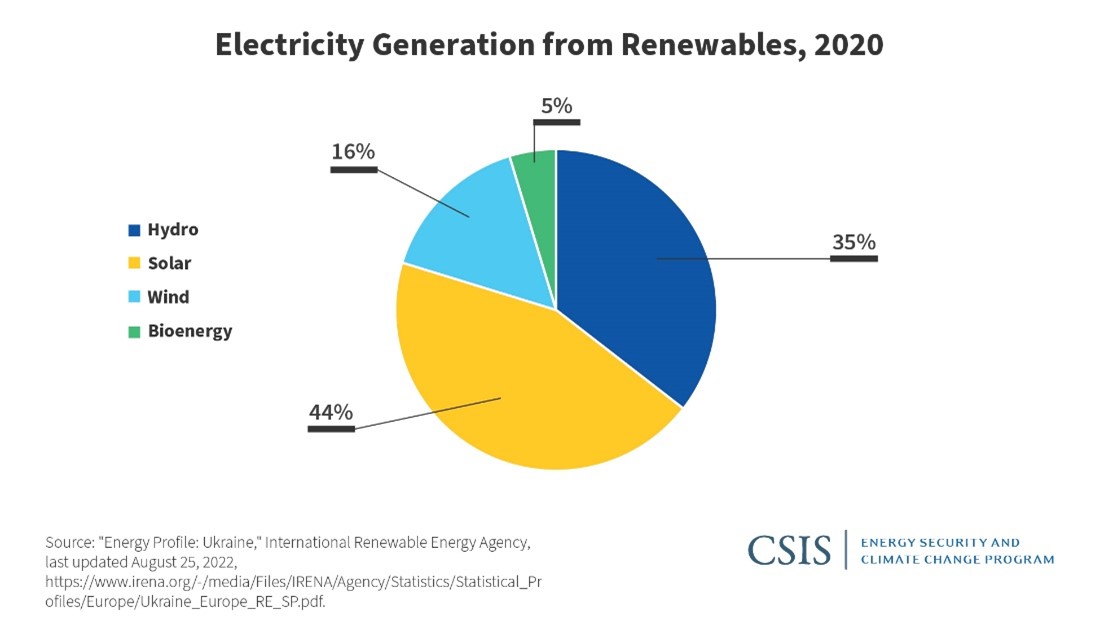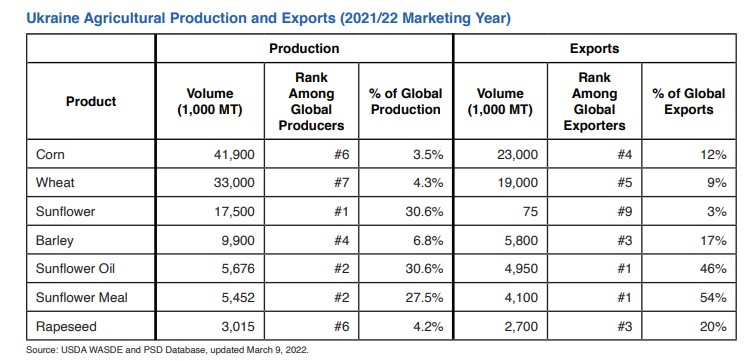
What is the Ukraine Facility?
To assist Ukraine in its recovery, reconstruction, and modernization efforts, the European Union has introduced a new support mechanism for 2024 to 2027 called the Ukraine Facility. This dedicated financial instrument enables the EU to provide Ukraine with up to €50 billion in stable and predictable support during this period.
Amazon Consulting, with its long-standing experience, has been helping Ukrainian businesses from the very beginning to gain access to the funds of the Ukraine Facility.
Table of contents:
- Aims of the Ukraine Facility
- Eligible sectors for financing
- How does the Ukraine Facility Work?
- Source of funding
- Conditions for Support
- Services of Amazon Consulting
Aims of the Ukraine Facility
The Ukraine Facility has several key objectives:
- To assist in Ukraine's recovery, reconstruction, and modernization.
- To address Ukraine’s financial needs, ensuring the government can maintain uninterrupted public services.
- To mobilize investments in Ukraine’s private sector, facilitating rapid economic recovery and reconstruction.
- To support Ukraine in carrying out the necessary reforms for its EU accession.
- To address the social impacts of the ongoing conflict, benefiting the broader Ukrainian society.
Key Sectors and Eligible companies for financing
These are priority sectors whose accelerated development is crucial for driving broad economic growth.
Energy Sector
Key priorities include ensuring energy security and advancing the transition towards low-carbon and renewable energy sources, alongside the continued push for energy sustainability. This will enhance Ukraine’s export capabilities within European markets and broaden opportunities for attracting investment.
- Transparent, timely, and coordinated development
- Creating favorable conditions for renewable energy growth and investment
- Integration with the EU market
- Post-war liberalization of gas and electricity markets
- Establishing an independent regulator
- Promoting energy efficiency and sustainable heating
- Improving energy efficiency in buildings
The implementation of these practices will bolster energy security and sustainability, expand the share of green energy, reduce environmental impact, and boost international investor confidence in the energy sector.

Transport and Export Logistics
Transportation and logistics are vital to export-driven development. Ukraine needs to modernize its logistics systems, improve TEN-T networks, align the railway sector with EU standards, and enhance port services.
- Rebuilding transportation infrastructure
- Modernizing export routes to the EU
- Developing a competitive rail transportation market
- Ensuring safe and high-quality port services
The result will be the modernization of Ukraine’s transport sector and stronger integration with EU and global markets.
Agri-food Sector
Ukraine has significant potential for production and exports in the agri-food sector. The focus of reforms and investments should be on sustainable sector development, enhanced competitiveness, and alignment with European standards.
- Comprehensive sector development with effective regulation
- Digitalization, automation, and transparency
- Sector support modeled after the EU
- Boosting agricultural productivity and food security
- Developing a national demining strategy
These measures will enhance productivity in the agri-food sector, increase exports, create new jobs, ensure food sustainability and safety, and promote eco-friendly production.

Critical Raw Materials
Ukraine holds reserves of 22 of the 34 minerals deemed critical for the EU. The goal is to not only supply raw materials but to produce higher-value, technologically advanced products.
- Developing extraction and processing capabilities
- Promoting transparent, fast, and efficient investments
- Emphasizing environmental, social, and governance (ESG) reporting
These initiatives will promote sustainable growth in the critical raw materials sector, boost its contribution to the economy, create jobs, and strengthen Ukraine’s position in the global market for value-added critical materials.The European Union is heavily investing in critical raw materials to secure supply chains and reduce dependence on external sources. As a result, the EU has introduced the Critical Raw Materials Act to strengthen resilience and sustainability in these sectors.
Entrepreneurship, SME Development, and Processing Industry
In addition to the sectors detailed in other chapters, the Business Environment chapter outlines investment priorities, with a focus on fostering entrepreneurship and SMEs, as well as strengthening key manufacturing industries.
Financial Stimulus
- Provision of grants and low-interest loans
- Programs for financial support
- Diversification of International Financial Institutions (IFI) financing programs
- Expanding project investment financing
- Implementation of affordable military insurance mechanisms
Information Technologies
The IT sector is key to driving digital transformation and innovations across industries. Reforms will reduce corruption risks and administrative burdens on businesses.
- Fast, secure communication
- Fostering a startup ecosystem
- Integration with the EU’s digital market
- "State in a smartphone" initiative
This will facilitate Ukraine’s integration into the EU’s Digital Single Market and increase its investment potential.
Green Transition and Environmental Protection
Achieving climate neutrality offers a chance to modernize Ukraine’s economy, boost resource efficiency, and increase competitiveness. This requires major investments in the energy sector, green steel, agriculture, and other industries. Ukraine has the potential to become a European leader in decarbonization.
- Tackling industrial pollution
- Moving towards climate neutrality
- Developing an emissions allowance market
- Addressing illegal logging
- Promoting waste recycling and transitioning away from a resource-based economy
These efforts will improve public health protection and enhance the innovation potential of the economy.
How Does the Ukraine Facility Work?
The Ukraine Facility is structured around three core pillars:
Pillar 1: Direct Financial Support to Ukraine
Ukraine's government will prepare a comprehensive plan outlining its vision for recovery, reconstruction, modernization, and the reforms it will undertake as part of the EU accession process.
If this plan meets the required conditions, the EU will provide over €38 billion in financial assistance from 2024 to 2027. This support will consist of loans totaling up to €33 billion, complemented by grants. The aim is to ensure Ukraine receives the necessary financial backing for its recovery and modernization goals.
Pillar 2: A Specific Investment Framework for Ukraine
To further accelerate Ukraine’s recovery and reconstruction, the Facility will create a specific investment framework.
This framework is designed to attract investments by offering EU budget guarantees and a combination of grants and loans from both public and private institutions.
This mechanism will make investing in Ukraine more appealing to investors. The Ukraine Investment Framework will have €9.3 billion in guarantees and grants, with the potential to mobilize up to €40 billion in public and private investments over the next several years.
Pillar 3: Accession Assistance
The Ukraine Facility also includes new measures to support Ukraine’s alignment with EU laws and to aid the country in implementing the reforms necessary for EU accession.
Technical assistance will be made available to national, regional, and local authorities, as well as to civil society organizations. These resources will help Ukraine integrate more effectively with EU standards as it moves towards potential membership.
Source of funding
To provide loans to Ukraine, the European Union will raise up to €33 billion by issuing EU bonds under its unified funding strategy through the end of 2027. Grants, on the other hand, will be funded through the EU’s annual budget using a special instrument called the Ukraine Reserve.
This reserve will be mobilized annually as part of the EU’s budget process, with funding dependent on Ukraine’s progress in implementing reforms and utilizing investments effectively.
Conditions for Support
In order to access the financial support from the Ukraine Facility, Ukraine must adhere to specific conditions, including implementing its recovery and reform plan and upholding:
- Democratic institutions, including a multi-party parliamentary system.
- The rule of law.
- Human rights, particularly the rights of minority groups.
Once the European Commission confirms that these conditions are met, Ukraine will receive payments on a fixed quarterly schedule. While the Facility’s elements are being put in place, the EU has the capacity to provide up to €1.5 billion in immediate monthly support to Ukraine for a limited period.
Companies that will participate in the program must present a detailed plan of the expenses they intend to make. Priority is given to companies promoting expenses related to the twin green and digital transition.

Safeguarding EU Financial Interests
The European Commission and Ukraine will work together to protect the EU’s financial interests, with measures in place to prevent fraud, corruption, and conflicts of interest. A dedicated Audit Board will provide regular reports to ensure the funds are used effectively to achieve the Facility’s objectives.
Moreover, the European Council will engage in an annual review of the Facility’s implementation, based on reports from the European Commission. If necessary, the Council may request a review of the Facility after two years in the context of the next long-term EU budget. In addition, a regular Ukraine Facility Dialogue will be held with the European Parliament every four months to ensure transparency and accountability.
How can Amazon Consulting help Ukrainian Companies?
We assist Ukraine-based companies in securing low-interest loans or grants from Brussels. For over three decades, we have provided business consultancy and strategic partnership services to Ukrainian businesses. Representatives from Amazon Consulting maintain a strong presence in Ukraine, working closely with local business leaders to support their expansion efforts into the EU and the Middle East.
Amazon Consulting is one of the most experienced EU Funding consulting companies.
We have applied for grants totalling more than 250 million euros for projects across various industries, including technology, telecommunication, shipping, manufacturing, and healthcare (updated March 2024).
Amazon Consulting undertakes the following steps to ensure that your company will receive a grant and a sovereignty seal status:
- Assess the prospects of your projects or startup.
- Analyse the existing funding opportunities, tenders, legislation, and policies.
- Identify the relevant EU sources of funding for the project and develop an appropriate initial funding strategy.
- Initiate a channel of communication between your company and the EU authorities.
- Collect relevant documentation (e.g., organization chart, feasibility studies, business plans, building permits, patents, leasing agreements etc.)
- Prepare EU regulation-compliant business plans/feasibility studies.
- Complete and submit applications.
- Conduct negotiations and interviews with EU officials.
- Use Amazon Consulting’s extensive network of policymakers, politicians, academics, commissioners to present your project and demonstrate how it aligns with the goals of the EU.
- Draft reports presenting the project’s progress during the different phases.
Why to work with Amazon Consulting?
We have significant experience in successfully applying for various EU funding plans over the past 10 years. We have ensured funding for our clients of more than €250 mil.
We can identify and mobilize influential European consultants and scientists who actively contribute to the formulation of the EU legislation.
Through our extensive network, we will introduce your company to the legislative activities in Brussels and initiate contact with policymakers, legislators, commissioners and ex-ministers.
We maintain strong relationships with EU lobbies (public affairs companies) operating within the EU, as well as with scientists involved in drafting legislation.
Our network includes strong ties with prominent educational and research institutions in the UK, such as the London School of Economics, Oxford University, and Durham University
Capitalizing on our connections with universities and laboratories, we can assist in the recruitment of experts and scientists.
What are Amazon Consulting’s fees?
Our fees consist of:
- Operating expenses from on-going services (e.g. drafting of business plan, submission of applications, negotiations, follow-up meetings, preparation of reports etc.)
- Success fee. This fee is payable only if the subsidy is granted. The success fee is expressed as a percentage of the subsidy amount.

